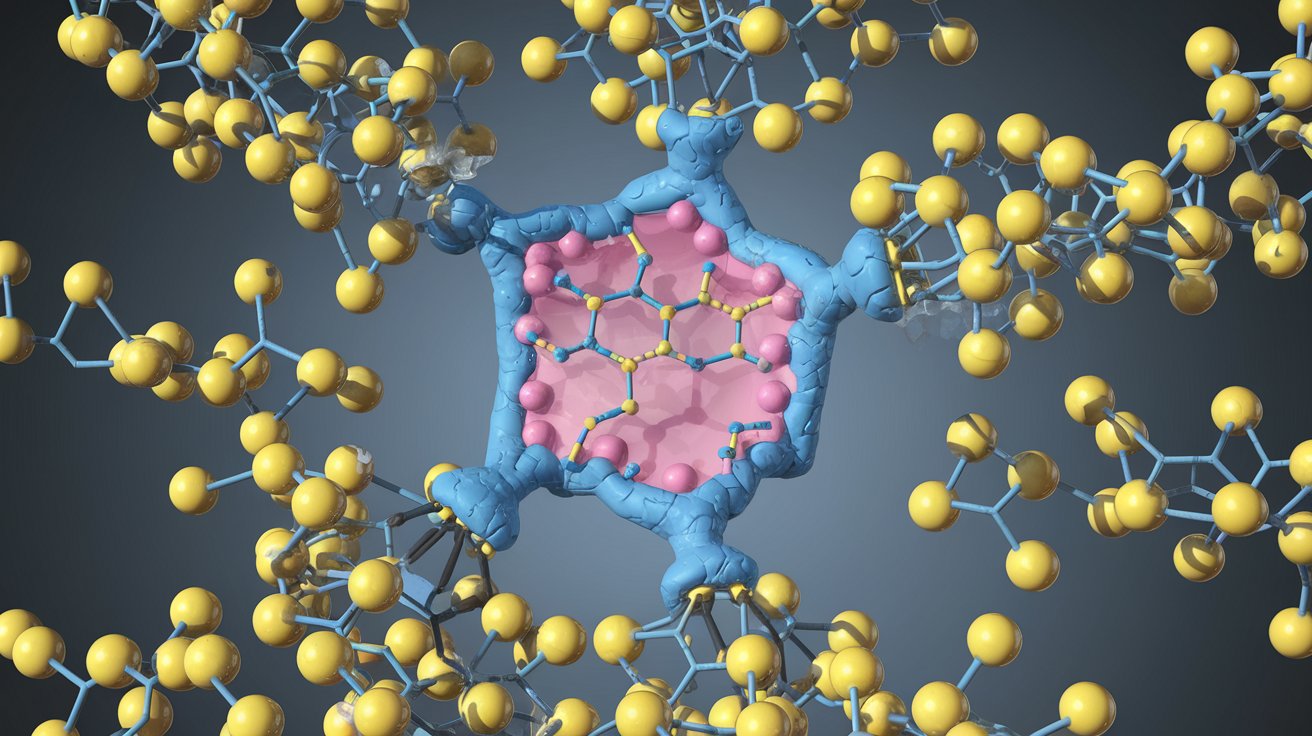
Glucose-6-Phosphate Translocase Deficiency is a rare genetic disorder that affects the body's ability to manage glucose, leading to serious health issues. This condition disrupts the normal function of glucose-6-phosphate translocase, an enzyme crucial for glucose production. Without it, the body struggles to maintain stable blood sugar levels, causing symptoms like hypoglycemia, lactic acidosis, and growth delays. Understanding this deficiency is vital for those affected and their families. In this post, we'll explore 25 essential facts about this condition, shedding light on its causes, symptoms, diagnosis, and treatment options. Stay informed to better manage and support those living with this challenging disorder.
Key Takeaways:
- Glucose-6-Phosphate Translocase Deficiency is a rare genetic disorder affecting glucose management, leading to hypoglycemia, infections, and growth issues. Treatment involves dietary adjustments and medical interventions for a relatively normal life.
- Ongoing research on Glucose-6-Phosphate Translocase Deficiency aims to improve understanding and develop new treatments, including gene therapy and medications. Joining support groups and clinical trials can provide valuable support and access to cutting-edge treatments.
What is Glucose-6-Phosphate Translocase Deficiency?
Glucose-6-Phosphate Translocase Deficiency, also known as Glycogen Storage Disease Type Ib, is a rare genetic disorder. It affects the body's ability to manage glucose, leading to various health issues. Here are some intriguing facts about this condition.
-
Genetic Origin: This deficiency is inherited in an autosomal recessive manner, meaning both parents must carry the defective gene.
-
Enzyme Deficiency: The disorder results from a lack of the enzyme glucose-6-phosphate translocase, crucial for glucose production in the liver.
-
Glycogen Storage: Affected individuals cannot properly convert glycogen to glucose, leading to excessive glycogen storage in the liver and kidneys.
-
Hypoglycemia: One of the primary symptoms is severe hypoglycemia, or low blood sugar, especially during fasting.
-
Neutropenia: Patients often have neutropenia, a condition characterized by low levels of neutrophils, a type of white blood cell.
Symptoms and Diagnosis
Understanding the symptoms and how the condition is diagnosed can help in early detection and management.
-
Growth Retardation: Children with this deficiency may experience growth retardation due to poor glucose management.
-
Liver Enlargement: Hepatomegaly, or liver enlargement, is a common symptom due to glycogen buildup.
-
Frequent Infections: Due to neutropenia, patients are more susceptible to frequent bacterial infections.
-
Blood Tests: Diagnosis often involves blood tests showing low blood sugar, high lactate, and high uric acid levels.
-
Genetic Testing: Confirmatory diagnosis is usually done through genetic testing to identify mutations in the SLC37A4 gene.
Treatment and Management
Managing this deficiency involves a combination of dietary adjustments and medical interventions.
-
Cornstarch Therapy: Uncooked cornstarch is a common treatment to maintain blood glucose levels, especially overnight.
-
Frequent Meals: Patients often need to eat small, frequent meals rich in carbohydrates to prevent hypoglycemia.
-
G-CSF Therapy: Granulocyte colony-stimulating factor (G-CSF) may be used to treat neutropenia and reduce infection risk.
-
Liver Transplant: In severe cases, a liver transplant might be considered to manage symptoms and improve quality of life.
-
Monitoring: Regular monitoring of blood sugar levels and growth parameters is essential for managing the condition.
Complications and Prognosis
Complications can arise if the condition is not properly managed, but with appropriate care, patients can lead relatively normal lives.
-
Kidney Issues: Long-term complications can include kidney damage due to glycogen buildup.
-
Gout: High uric acid levels can lead to gout, a painful joint condition.
-
Osteoporosis: Patients may develop osteoporosis, a condition where bones become weak and brittle.
-
Delayed Puberty: Adolescents might experience delayed puberty due to chronic illness and poor nutrition.
-
Life Expectancy: With proper management, individuals can have a normal life expectancy, though they may face ongoing health challenges.
Research and Future Directions
Ongoing research aims to improve understanding and treatment of this rare disorder.
-
Gene Therapy: Researchers are exploring gene therapy as a potential cure by correcting the defective gene.
-
New Medications: Development of new medications to better manage symptoms and complications is underway.
-
Patient Registries: International patient registries help track cases and improve understanding of the disease's natural history.
-
Clinical Trials: Participation in clinical trials can provide access to cutting-edge treatments and contribute to scientific knowledge.
-
Support Groups: Joining support groups can provide emotional support and practical advice for managing the condition.
Final Thoughts on Glucose-6-Phosphate Translocase Deficiency
Glucose-6-Phosphate Translocase Deficiency, though rare, has significant impacts on those affected. Understanding its symptoms, causes, and treatment options can help manage this condition better. Early diagnosis and proper medical care are crucial for improving the quality of life for patients. Genetic counseling can also provide valuable insights for families dealing with this deficiency.
Staying informed about the latest research and advancements in treatment can make a big difference. Support groups and resources are available for those seeking more information or community support. Remember, knowledge is power when it comes to managing health conditions.
By spreading awareness and fostering understanding, we can contribute to better outcomes for those living with Glucose-6-Phosphate Translocase Deficiency. Stay curious, stay informed, and support each other in the journey towards better health.
Frequently Asked Questions
Was this page helpful?
Our commitment to delivering trustworthy and engaging content is at the heart of what we do. Each fact on our site is contributed by real users like you, bringing a wealth of diverse insights and information. To ensure the highest standards of accuracy and reliability, our dedicated editors meticulously review each submission. This process guarantees that the facts we share are not only fascinating but also credible. Trust in our commitment to quality and authenticity as you explore and learn with us.
